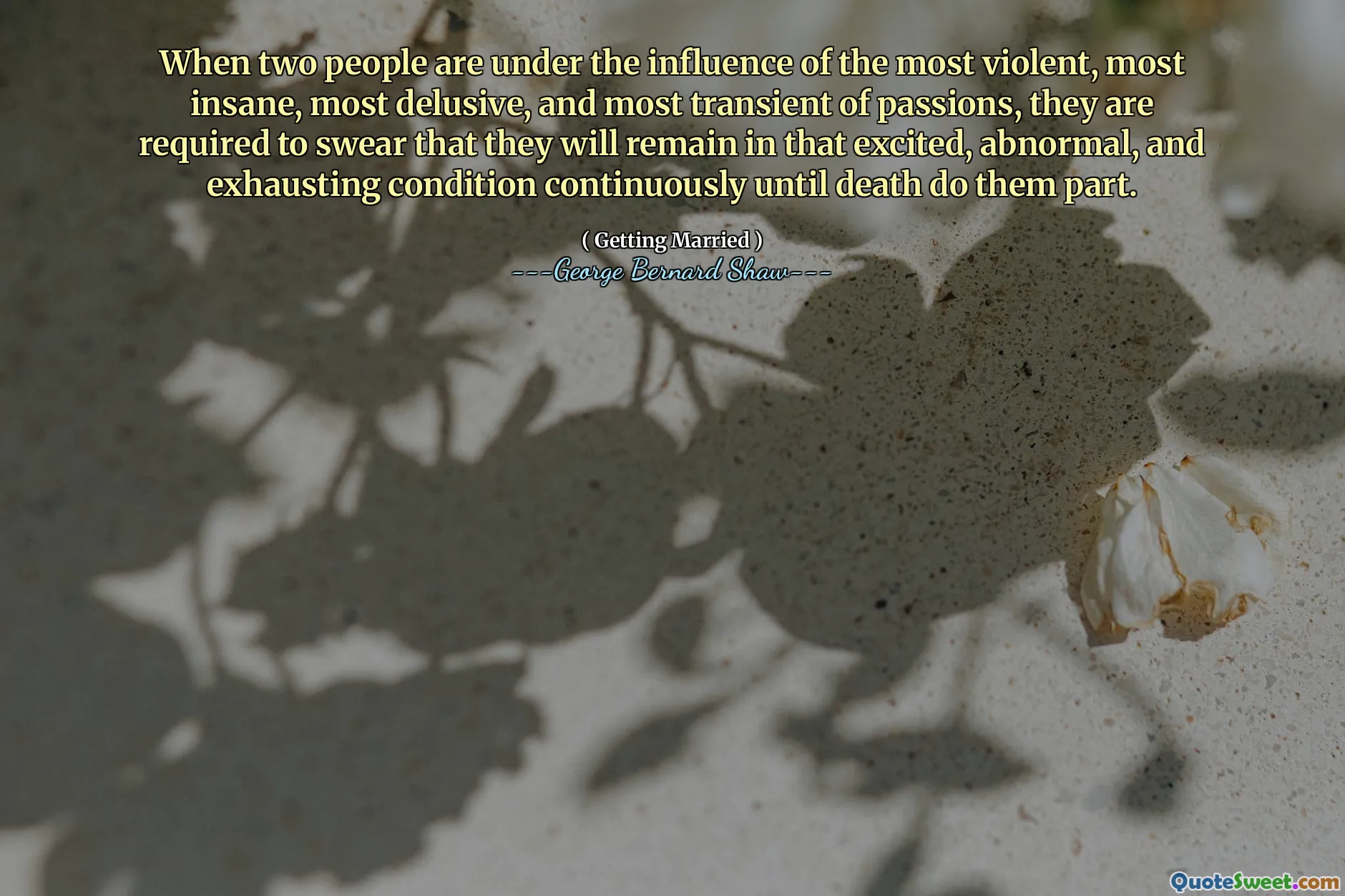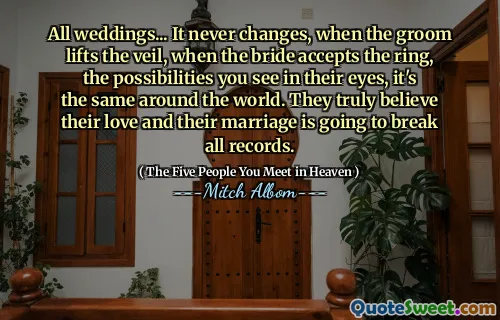
When two people are under the influence of the most violent, most insane, most delusive, and most transient of passions, they are required to swear that they will remain in that excited, abnormal, and exhausting condition continuously until death do them part.
In George Bernard Shaw's book "Getting Married," he highlights the intense and often irrational nature of love and passion between two individuals. Shaw critiques the idea of marriage, suggesting that couples enter a contract while under the overwhelming influence of strong emotions, which can distort their judgment and expectations. This passionate state is described as violent and delusive, pointing out the inherent instability of such feelings.
Moreover, he notes the absurdity of promising to maintain this heightened emotional state indefinitely, as it is a temporary and exhausting condition. Shaw's perspective suggests that the institution of marriage compels partners to commit to an unrealistic continuity of a fleeting passion, raising questions about the sustainability and rationality of such vows over a lifetime.






